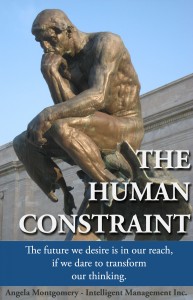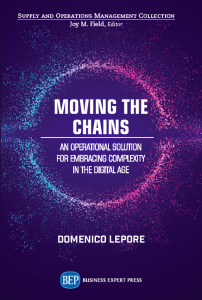
“In order to live and prosper in this world of unprecedented interconnection we have to learn at a much faster pace…”
Our Founder, Dr. Domenico Lepore wrote this passage in 2010 as the global financial crisis continued to rage. Those words were prophetic and even more relevant and urgently needed today. The following is an extract from ‘Sechel: Logic, Language and Tools to Manage Any Organization as a Network.’
One of the most profound and, I believe, misunderstood elements of Deming’s doctrine is the notion of “Joy in learning”. In his seminal 4-day seminars Deming never missed the opportunity to remind the audience, often in a deceptive semi-serious tone, that joyfulness and learning go hand in hand. Learning happens when positive emotions are created and curiosity is triggered in the student. Learning happens when something, hopefully a good teacher, inspires us to want to know more. Joyfulness is the state of mind that is conducive to openness and availability to receive; it is a state of grace that makes us see possibilities, that lifts our spirit and originates positive feelings. As one of the greatest intellects of our times, Rav Menachem Mendel Schneerson, has taught us, joy is the force that breaks all the boundaries.
Far too often in our world, instead, learning is incentivized by the promise of a reward other than the learning itself and joy is confined to some material achievement. In the western world, by far and large, we have replaced the joy of learning with the acknowledgement granted with it. Learning, then, becomes merely functional to achieving some grade or certificate, and completely disconnected from what that learning should be for: to open our mind to the endless possibilities that exist and encourage more learning. The current education system contributes very heavily to the narrowing of our horizons by providing courses on “functional” competencies, the ones that are going to be rewarded in the workplace, and trains us through grades and competition to see joy as unnecessary or even counterproductive. The current education system triggers the cycle of despair and the debasement of our innate desire to learn, and the prevailing management style reinforces that cycle.
The complete disassociation that managers have from learning is exemplified by the total failure of the majority of the training efforts that take place in organizations. Simply put: real learning, not the kind that comes from reading quick fix books, but the kind that changes behaviours, is not considered “strategic” for career advancement.
What is the real difficulty that we face in wanting to create a true learning organization that dismantles the functional structure and replaces it with the far more suitable network of projects? It is not connected with lack of knowledge of how to do it, nor with the lack of technologies to support it. The real issue is the mental barrier, or cognitive constraint that prevents individuals and organizations from working together as a system for a common goal.
We cannot afford to be pessimistic about the possibility to elevate that cognitive constraint. We cannot afford to surrender to the lack of intelligence that permeates the way politics and businesses are run today. We cannot afford to see as inevitable that insurance companies and Big Pharma control our health and we cannot afford to continue to believe that one day we could be part of that 1% of the population that owns 80% of the wealth. We cannot afford to trust the claims made by the financial pundits and Wall Street wizards of how they boost our economy. We cannot afford to be persuaded that only our individual efforts and personal drive will, eventually, be the cause of our success as a country. Those days are gone forever.
We live in a completely interconnected, interdependent, increasingly complex world where the levers for success have definitively shifted from competition to cooperation, from win-lose to win-win, from me against you to you and me against the problem. We don’t just need new knowledge; we need a new form of organization and a new covenant with our mind.
In order to live and prosper in this world of unprecedented interconnection we have to learn at a much faster pace and we can only do it if we improve our ability to leverage our intellect. This book, ‘Sechel’ was written to show that we have the necessity and the way to do precisely that.
Extract from ‘Sechel: Logic, Language and Tools to Manage any Organization as a Network.’
Contact: intelligentmanagement@sechel.ws
SCHEDULE AN INTRODUCTORY CALL WITH US







Leave a Reply